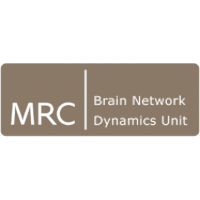
30 Jan PhD – Interfacing with the Brain for Therapy
Supervisors: Prof Huiling Tan
Applications are invited from both Home students and International students to join a multidisciplinary team of scientists studying neurodynamics and its control for therapy. This studentship is available from the start of academic year 2021/22 for 3 years, and will be primarily supervised by Associate Professor Huiling Tan at the MRC BNDU.
Background:
Brain-Computer Interface technology (BCI) aims to decode a user’s mental state or movement intent through brain signals, and use this information to operate a computer interface, wheelchair, robotic arm or other device. BCI is not only used to provide an alternative pathway for the brain to interact with the environment, but also provides a potential tool for neurofeedback training, in which patients may learn to modulate their own brain activities through reinforcement learning. In addition, the BCI framework is also used to deliver stimulation to the brain in a closed-loop fashion based on the detection of specific neural signals or specific mental states in order to improve the treatment of neurological disorders such as Parkinson’s disease (PD).
Project Description:
The overall aim of the PhD project is to interface with the brain to modify behaviour and improve therapy. To achieve this goal, we will investigate the function of frequency-specific neural oscillations in decision-making and motor control in both health and disease through behavioural experiments with electrophysiological recordings and controlled neural stimulation in humans. The project will also involve identifying and extracting features in electrophysiological signals in real-time, as well as the design, implementation and test of BCIs for neurofeedback training and/or for closed-loop neuromodulation to interact with brain activities.
Training:
The project will take place in the Medical Research Council Brain Network Dynamics Unit at the University of Oxford and students will benefit from the extensive generic and transdisciplinary skills training and career development opportunities available within the Unit. This particular project will also offer the following specific training: 1. Behavioural experiment paradigms with healthy participants and patients with neurological disorders; 2. Advanced signals analysis, including statistical analytical techniques, mathematical modelling and machine learning; 3. Invasive and non-invasive brain stimulation using closed-loop approaches.
Key Publications:
He S, Everest-Phillips C, Clouter A, Brown P and Tan H (2020) Neurofeedback-Linked Suppression of Cortical β Bursts Speeds Up Movement Initiation in Healthy Motor Control: A Double-Blind Sham-Controlled Study. Journal of Neuroscience, 40 (20): 4021-4032
Little S, Brown P (2020) Debugging Adaptive Deep Brain Stimulation for Parkinson’s Disease. Movement Disorder, 35(4):555-561.
Tan H, Debarros J, He S, Pogosyan A, Aziz TZ, Huang Y, Wang S, Timmermann L, Visser-Vandewalle V, Pedrosa DJ, Green AL, Brown P (2019) Decoding voluntary movements and postural tremor based on thalamic LFPs as a basis for closed-loop stimulation for essential tremor. Brain Stimulation, 12(4):858-867.
Funding:
This Ph.D. (D.Phil.) studentship is funded by the Medical Research Council (MRC), a part of UKRI. The successful applicant is entitled to receive a tax-free stipend and, as a minimum, tuition fees paid at the Home level, regardless of whether they are Home or International students. Please see further details about MRC/UKRI studentships and updated guidance regarding Home and International eligibility. Successful applicants can also be considered for University scholarships.
Qualifications & Experience:
Interested candidates should possess, or expect to receive, a 1st class or upper 2nd class degree (or equivalent) in a related scientific discipline, e.g. biological or physical sciences, medicine, computer science, engineering, mathematics. Good analytical and programming skills are essential. Previous experience in brain computer interfacing, electronics or neuroscience research is desired.
Contact:
We strongly encourage candidates to contact the project supervisor before submitting an application. To find out more about this MRC-funded studentship, the research project, and the application process, please contact Prof Huiling Tan by email on huiling.tan@ndcn.ox.ac.uk. Prof Tan is also happy to consider supervising PhD students funded by Departmental scholarships and other doctoral training programmes at Oxford, as well as PhD students with their own independent funding.
How to apply:
To be considered for this MRC-funded studentship, please submit an application for admission to the D.Phil. in the Nuffield Department of Clinical Neurosciences (course code RD_CU1), following the guidance. On the application form, in the section headed ‘Departmental Studentship Applications’, please indicate that you are applying for a studentship and enter the reference code for a MRC BNDU studentship “21CLINNEURO01WEB“.
Please click here to learn more.


Sorry, the comment form is closed at this time.